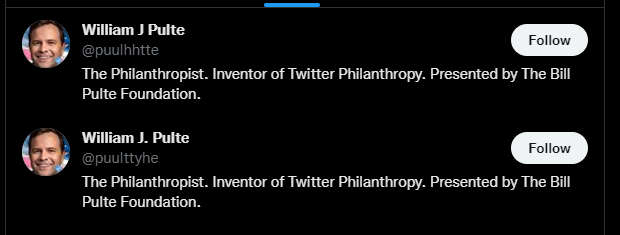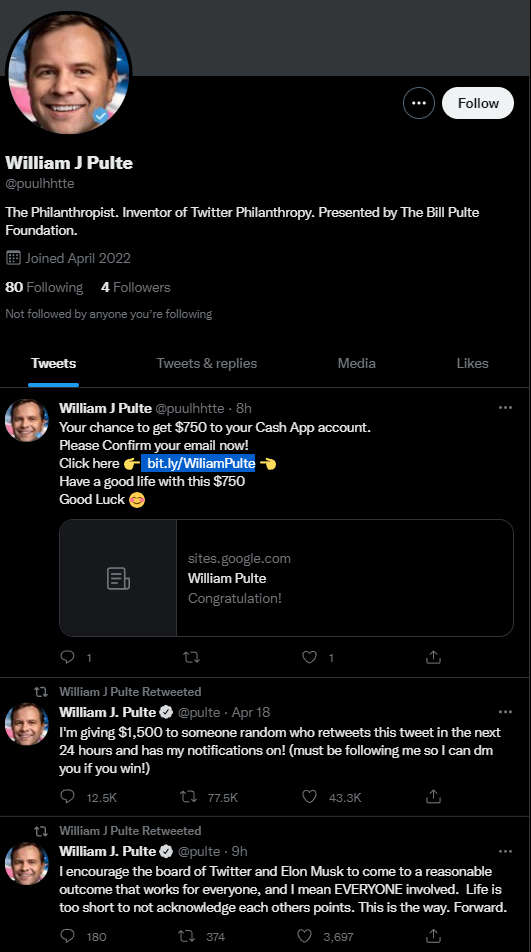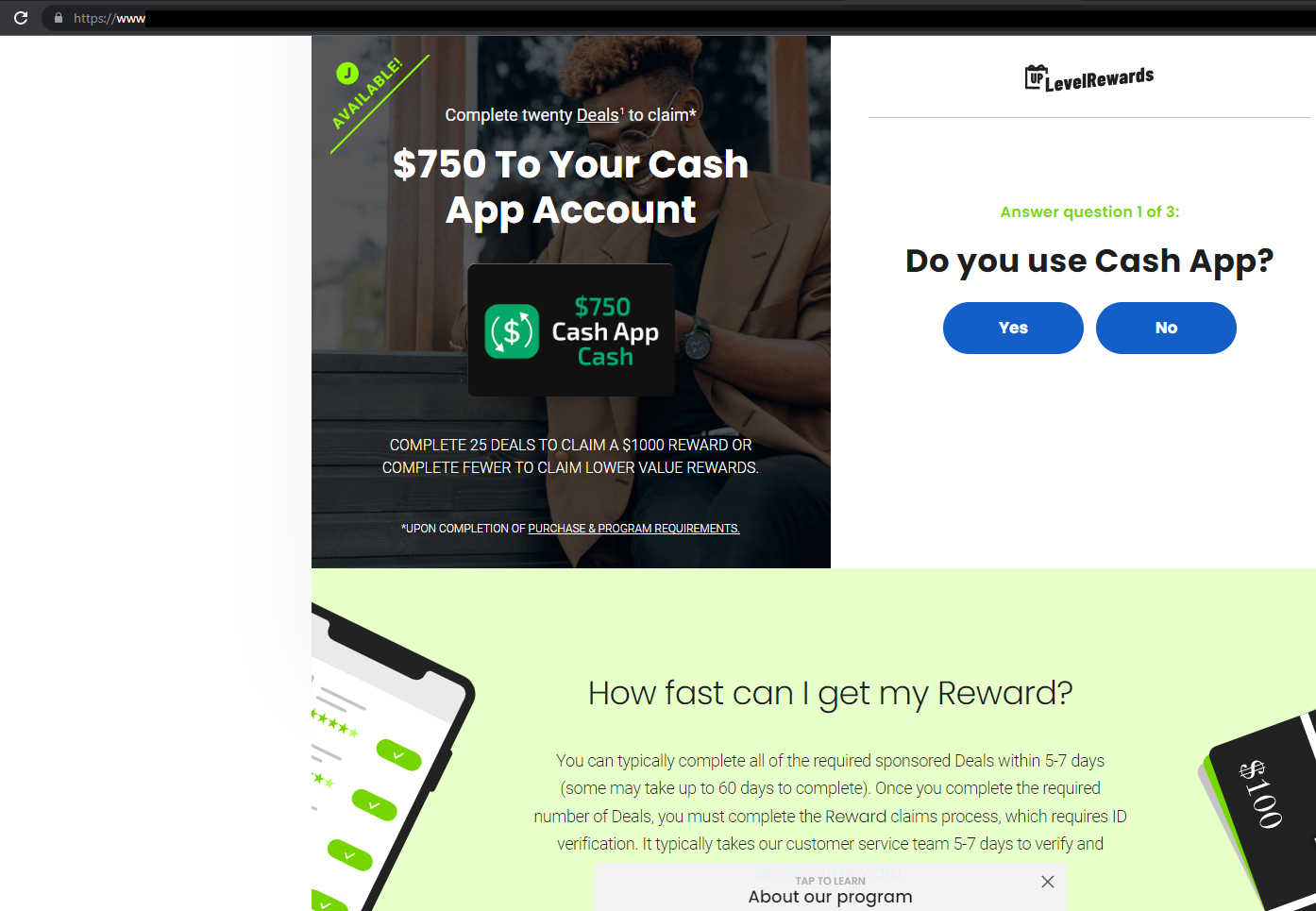Twitter philanthropists are a controversial emergence on the social media platform. In essence, Twitter-based philanthropy is about incredibly rich people helping out those who need it. The help is random, and often focused around performing a task like listening to a podcast or simply retweeting something. Of course, not everyone can “win” and many, many people miss out.
Unfortunately there is no shortage of people who could use some assistance. So it was probably inevitable that copycats and scams offering false hope would jump in, ready to leave victims worse off than when they started.
The biggest name in Twitter philanthropy is probably William J. Pulte. His account, specifically, has developed a few barnacles of the copycat variety. Shall we take a look?
Fake it till you make it
Spot the problem below:

The bio and profile on both accounts is a straight copy of the real thing. Well, almost. The fake profiles aren’t verified so they edit the profile picture to include a blue Twitter bird. It’s not going to pass as verified for experienced social media users, but it’s the only option the scammers have.
The fake accounts take the unusual decision to retweet the real William a few times. They then drop their own bogus tweets into the mix.

One of them says:
Your chance to get $750 to your Cash App account.Please Confirm your email now!Click here [URL removed]Have a good life with the $750Good luck
It’s not a Lorem Ipsum page, but it’s close
The above tweet already sounds quite a bit different to the genuine article from “the inventor of Twitter philanthropy”. There, money is given directly with no use of shortening links or external sites (not that I’ve seen, anyway!)
For argument’s sake, let’s assume you’re convinced by the fake profile and you’re ready to click the bit.ly link. Before clicking, imagine the following scenario: You are William. You are rich. Staggeringly rich. So rich, you can give away a million dollarson social media over the course of a pandemic.
You then decide to put together the worst looking website anybody has ever seen and throw it on a free hosting service…

The site reads as follows:
Congratulation!Your chance to get $750 to your Cash App account.Please Confirm Your Email Now!
The link is only aimed at residents of the US. Should you click it from outside the desired region, you’ll be bounced off to a random assortment of other promo-style websites.
When free money isn’t free money…
Assuming you are indeed in the US, you’ll end up on the below page:

The offer has shifted gears abruptly from “rich person on Twitter might give me money I may urgently need” to “complete twenty deals to claim $750.”
Wait, what?
Yes, the fake profiles have quite cruelly sent people to some sort of sign-up offers deal. Not only that, but it’s the type which requires some form of monetary outlay in the first place. In fact, it’s entirely possible taking part could leave them lesswell off in total than if they’d tried to save up. Under the “how fast can I get my reward?” section, it says you can “typically complete” the required sponsored deals “within 5 – 7 days.” It also says some may take “up to 60” days to complete.
This does notreally sound like what was originally promised by fake William.
Closing out the deal
Anyone genuinely giving away huge sums of money on Twitter is almost certainly going to have a verified profile. At the very least, you should be verycautious around non-verified profiles where promises of money are concerned. Even where profiles are verified, they can still be compromisedand used for scams. Anything falling outside the typical posting pattern of accounts which do give away money to those in need should be treated with suspicion.
While the concept of free money from Twitter philanthropists is a potentially good one, simply ensuring the deck hasn’t been stacked against you may be too much of a risk itself. Stay safe out there!










